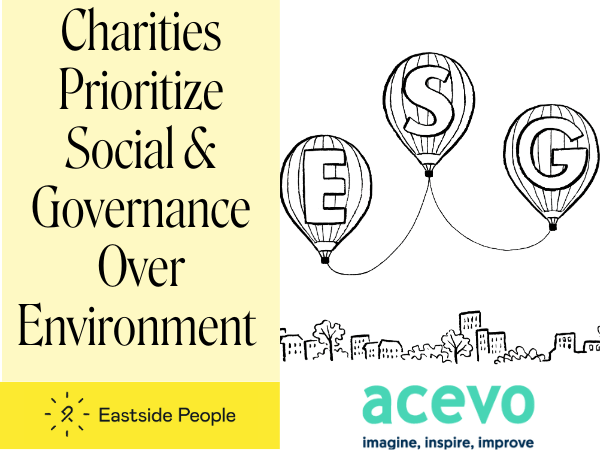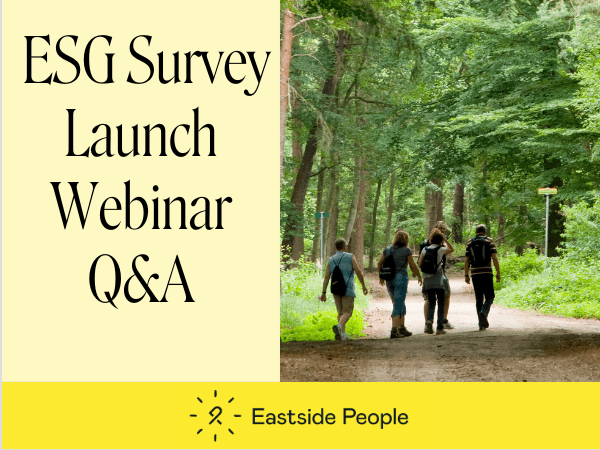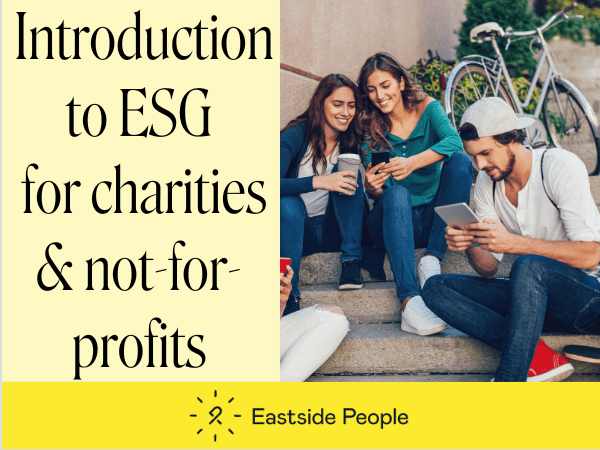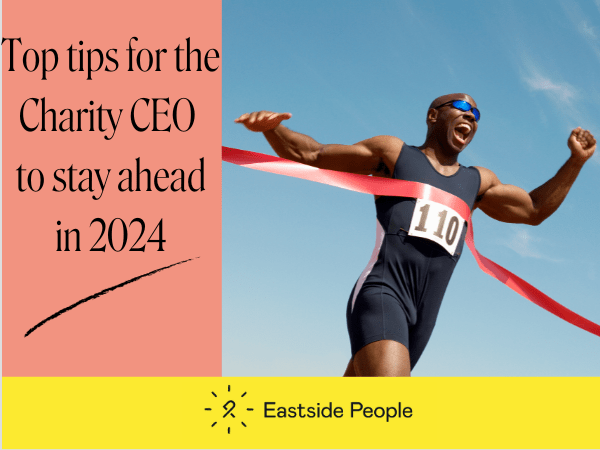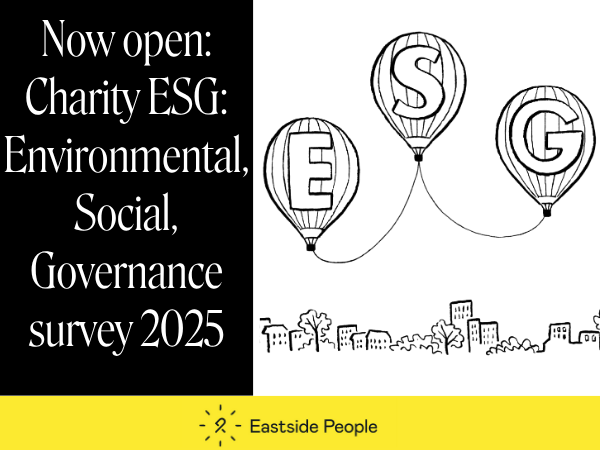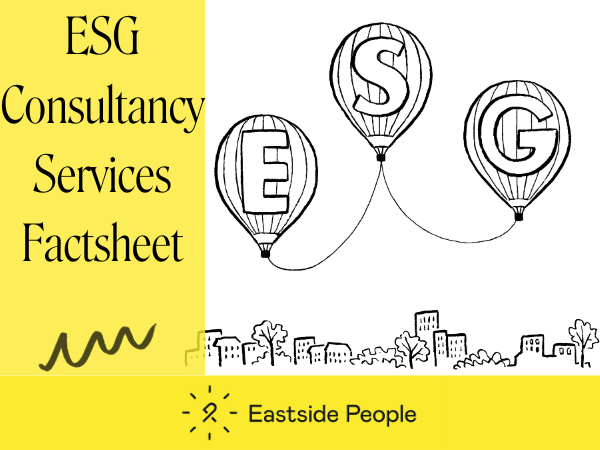Blog by our specialist social impact and strategic consultant Mona Vadher.
As scrutiny intensifies and expectations rise around Equity, Diversity and Inclusion (EDI), it’s no longer enough for CEOs to treat it as a box-ticking exercise. True EDI transformation begins at the top. The leadership’s commitment shapes the culture, strategy and impact of EDI efforts across an organisation. With the recent backlash against performative diversity practices, CEOs must step into a space of reflective and intentional leadership.
Understanding EDI: Definitions matter
EDI stands for Equity, Diversity and Inclusion. These terms, while often used together, have distinct meanings:
- Equity is about ensuring fair treatment, access, opportunity and advancement for all people, while striving to identify and eliminate barriers that have prevented the full participation of some groups. It differs from equality, which assumes that everyone benefits from the same support.
- Diversity refers to the presence of differences that include race, gender, religion, sexual orientation, ethnicity, nationality, socio-economic status, language, (dis)ability, age and more. Diversity is both invisible and visible.
- Inclusion is the practice of creating environments in which any individual or group can feel welcomed, respected, supported and valued to fully participate.
In the context of the charity and third sector, EDI is especially critical. These sectors are built on values of social justice, compassion and community, but they are not immune to structural inequities. Many charities operate in diverse communities, yet their leadership and staffing often do not reflect the people they serve. According to ACEVO and Voice4Change England’s 2020 Home Truths: Undoing racism and delivering real diversity in the charity sector report, over 90% of charity sector leaders are white and people of colour often experience racism and exclusion within the sector. This disconnect affects trust, effectiveness and impact.
Therefore, embedding EDI in charities and non-profits isn’t just about internal fairness, it’s fundamental to mission success and community credibility.
Further research from the Charity Commission in 2021 found that only 9% of charity trustees come from Black and minoritised ethnic backgrounds, despite these communities making up over 14% of the UK population. Meanwhile, the NCVO’s 2023 Almanac highlights that disabled people, younger people and those from lower socio-economic backgrounds remain underrepresented in leadership roles within the voluntary sector. This disconnect affects trust, effectiveness and impact.
Our 2024 Environmental, Social and Governance (ESG) report (in partnership with ACEVO) revealed a concerning gap: 99% of leaders say EDI is important, but 56% rate their progress as just “starting out” or “developing.”
At Eastside People, we understand that real change requires more than statements and pledges. It demands consistent action, honest evaluation and a willingness to evolve. Through our consultancy and recruitment services, we support organisations to embed EDI meaningfully into their DNA.
In this blog, we outline five essential questions every CEO should ask to move beyond symbolic gestures and towards lasting, inclusive change.
- Is EDI embedded in our strategy or sitting on the sidelines?
It’s common for organisations to have a separate EDI policy or action plan, but true integration means that EDI is present at every decision-making table. Ask yourself:
- Is EDI a strategic priority in our business plan?
- How are EDI considerations influencing our operational and financial decisions?
- Are we using data to track progress on EDI goals across departments?
When EDI is sidelined as a standalone programme, it lacks the influence needed to create systemic change. CEOs must ensure EDI is a foundational part of business planning, not an afterthought. Our consultancy team at Eastside People helps organisations audit their existing strategy to identify where EDI can be more deeply embedded and aligned with core business objectives.
Beyond that, successful integration involves empowering each business function, including finance, operations, HR and marketing, to develop EDI objectives that tie into their everyday practices. It’s not about adding more to everyone’s to-do list, but about changing the way business is done. A values-driven strategy should make it clear that EDI is a lever for innovation, better decision-making, and stronger financial performance.
- Are we truly leading EDI from the front?
EDI must be driven from the top.
CEOs and Boards set the tone for the entire organisation. A performative stance, or one that delegates responsibility entirely to HR or junior teams, can send a dangerous message.
Leaders should reflect on:
- What visible actions have I taken to show my commitment to EDI?
- How am I holding myself and others accountable for progress?
- Am I actively seeking diverse perspectives in decision-making?
The most effective CEOs are those who lead from a place of humility and curiosity. Leadership that models vulnerability, such as openly discussing their own learning journey or acknowledging missteps. It can inspire cultural shifts at all levels of the organisation.
In an age where trust in leadership is fragile, CEOs must embody the values they promote. We work with Boards and senior leaders to facilitate EDI leadership development, challenge unconscious biases and embed inclusive practices into governance structures. We also provide bespoke workshops and strategic coaching to help leaders understand their unique role in advancing EDI.
- Are we being honest and transparent about our progress?
Transparency is a key driver of trust and accountability. While it’s tempting to highlight only the positives, acknowledging gaps and challenges is a sign of maturity and commitment to improvement.
Important considerations include:
- Are we publishing meaningful EDI data, beyond diversity statistics?
- Have we created safe spaces for employees to share feedback?
- Are we communicating our challenges as well as our successes?
According to McKinsey’s 2020 Diversity wins: How inclusion matters report, organisations in the top quartile for ethnic and cultural diversity on executive teams were 36% more likely to have above-average profitability. Yet many organisations fail to report meaningful progress because they lack the systems to capture and analyse EDI data comprehensively.
Organisations should consider publishing annual EDI reports that go beyond numbers to tell the story of change. Sharing qualitative insights, personal reflections and lessons learned. This can build internal morale and external credibility.
Eastside People support organisations in designing transparent reporting frameworks and internal communications strategies that foster open dialogue. We believe that honest storytelling, grounded in data and lived and learnt experience, is a powerful tool for engagement and learning.
- Are our recruitment practices inclusive and reflective of our values?
Recruitment is often the first point of contact between an organisation and its future talent. If bias, barriers, or exclusion are present at this stage, they echo throughout the employee lifecycle.
CEOs should ask:
- Are we actively reaching underrepresented groups through our recruitment channels?
- Have we audited our job descriptions and interview processes for bias?
- Do we provide equitable access to progression and leadership roles?
Inclusive recruitment doesn’t mean lowering standards. It means removing unnecessary barriers that might prevent talented people from applying or succeeding. This includes making language in job adverts more inclusive, diversifying interview panels and offering flexible working arrangements.
Through our recruitment services, Eastside People support clients to attract, assess and retain diverse talent. Our inclusive recruitment frameworks reduce bias and broaden access, ultimately strengthening organisational performance and innovation. We also work with organisations to monitor post-hire outcomes, helping them evaluate the long-term effectiveness of their recruitment strategies.
- Are all employee voices heard and valued?
Representation is just the beginning. Creating an inclusive culture means ensuring that everyone, regardless of background, feels safe and empowered to contribute. It also means recognising and acting on the unique experiences of marginalised groups.
Ask:
- Do our employee engagement surveys capture a range of perspectives?
- Are we acting on feedback from minority and marginalised staff?
- Do we create regular opportunities for listening and co-creation?
Creating safe spaces requires intention and investment. This may involve setting up affinity groups, hosting regular town halls, offering anonymous feedback channels, and creating mechanisms for employees to influence policy decisions.
The 2023 CIPD Good Work Index found that employees who feel included at work are over 60% more likely to report being engaged and satisfied in their roles. Organisations thrive when people feel valued, respected and able to be themselves.
Eastside People help clients implement inclusive engagement strategies and create cultures of psychological safety, trust and collaboration. We help clients make sure that listening isn’t just passive, it leads to tangible action and measurable outcomes.
Bonus question: Am I personally committed to continuous learning on EDI?
EDI is not a destination but a journey.
CEOs must be willing to learn, unlearn, and grow. This means being open to feedback, confronting discomfort, and staying informed on best practices.
Consider:
- When was the last time I engaged in EDI training or reflection?
- What personal actions am I taking to understand systemic inequities?
- How do I model inclusive leadership every day?
Leadership development in EDI involves more than attending a workshop. It’s about embedding reflection into everyday practices. CEOs who engage in coaching or peer learning groups often gain deeper insights and stronger resolve to lead change.
We encourage senior leaders to engage in ongoing development and reflection. Our consultancy services include 1:1 coaching, peer learning and board development programmes. This is a journey that evolves with you and we’re here to walk alongside you.
Use our free ESG tool
At Eastside People, we believe that robust Environmental, Social and Governance (ESG) practices are foundational to equity, diversity and inclusion.
That’s why, in partnership with ACEVO, we developed a free, online ESG Maturity Tool designed specifically for charities and not-for-profit organisations. It helps assess and benchmark your organisation’s maturity in:
- Governance structures and leadership accountability
- Environmental sustainability and impact
- Social responsibility, including community engagement and EDI
This tool aligns with the Charity Commission’s ‘Charity Annual Return: question guide’ and anticipates requirements from the new Charity SORP (Statement of Recommended Practice), expected to take effect in January 2026.
Trustees are now being asked to demonstrate how their organisation manages issues like transparency, sustainability and inclusion. Our tool provides a structured, sector-specific way to do just that.
Everyone who completes the survey receives a confidential, tailored report with:
- Benchmark data across the sector
- An EDI and ESG maturity rating
- A practical action plan to guide next steps
Register here to receive a link to complete the 2026 survey
This is more than a compliance tool. It’s a leadership compass for meaningful change.
How can Eastside People support your EDI journey?
Our services and events are designed to help organisations move from intention to action. Whether you’re just starting or looking to deepen your EDI impact, we can:
- Conduct comprehensive EDI audits and strategy reviews
- Facilitate inclusive leadership and unconscious bias training
- Support inclusive recruitment processes end-to-end
- Develop EDI communications and reporting strategies
- Build cultures of belonging, listening, and co-creation
- Provide 1:1 coaching for senior leaders and board members
- Design bespoke workshops and staff engagement sessions.
Join us at the Festival of Trusteeship
The Festival of Trusteeship which runs during Trustees Week from 3rd to 7th November is the UK’s largest online gathering of trustees where you’ll find a wealth of information and discussion about inclusive governance.
Get your tickets here
With decades of experience working across the charity, public, and private sectors, we bring a people-first, values-driven approach to everything we do. Our consultants come from diverse backgrounds with lived and learnt experiences, allowing us to bring empathy, rigour and insight to every partnership.
Conclusion: Real change starts with the right questions
Embedding EDI into the fabric of your organisation starts with courageous leadership. By asking the right questions and seeking honest answers, CEOs can unlock the potential of their people and build organisations that are truly inclusive, equitable, and impactful.
The journey will be complex, and at times uncomfortable, but the rewards are profound. A workplace that prioritises equity and inclusion not only perform better but becomes a beacon for others in the sector.
Eastside People is here to support you on that journey. Get in touch to learn more about our tailored consultancy and recruitment services, and let’s create lasting change together!
To explore how we can support your EDI ambitions, contact us via the button below or email [email protected].



